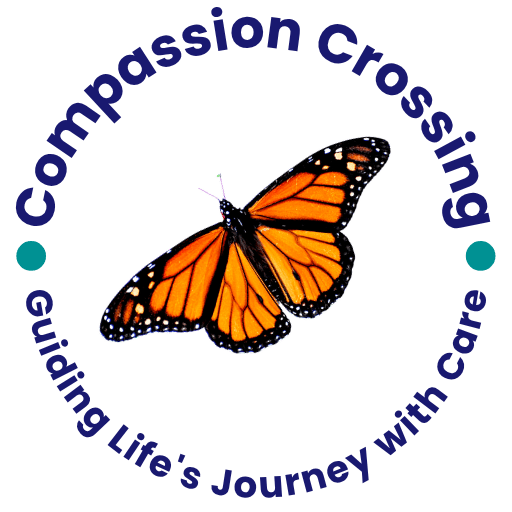
Welcome to Compassion Crossing! Our website is here to help caregivers, family members, and end-of-life professionals—with or without medical training—who care for someone with a chronic or terminal illness. You will find practical articles on pain management, palliative care, grief support, and making tough decisions, all to help you feel more prepared and confident.
Compassion Crossing, LLC also offers on-site support in Madison County, KY, and virtual support through Google Meet, Zoom, and other platforms for anyone needing help during life transitions. We are here to support you every step of the way, no matter where you are.
This site is supported by associate links, which never change your price but help us keep our content free and ad-free for everyone. With over 400 free articles, we believe everyone deserves compassionate support and knowledge during life’s hardest moments.

Please use the menu system to view the blog, which contains new articles with several sticky (pinned) articles at the top. You can also review past articles and explore the categories, tags (genres), popular articles, resources, or recommended reading.
Peter Abraham, BSN, RN, of Compassion Crossing, writes articles, books, guides, and printable materials to empower holistic nurses, hospice nurses, end-of-life doulas, and caregivers to thrive. His dedicated work aims to empower professionals in their mission to enhance patient outcomes. Recognizing the stress that often accompanies the drive for improvement, especially in challenging circumstances, he aspires to alleviate this pressure. By fostering a healthier and more supportive environment, he seeks to uplift everyone involved in the pursuit of excellence in care.
We’re here to help you during this difficult time. Schedule a free conversation with Nurse Peter to see how we can support you, someone you care about, or your organization.

This site is hosted by Dynamic Net, Inc., a U.S.-based firm operated out of Texas.
